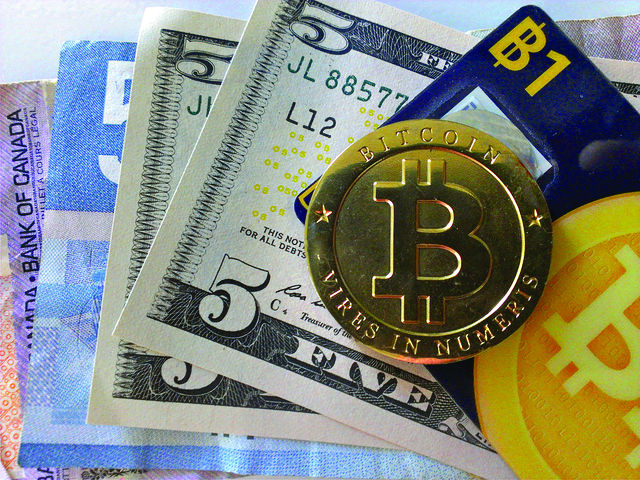New rising currency too new, unstable to replace US dollar
New alternatives to government-controlled money are taking rise in popularity as more and more businesses begin to accept them as payment. One online currency in particular, Bitcoin, has seen much success in the past few months.
An increasing number of vendors are accepting “bitcoins” as payment, from car dealerships to online businesses, and several places in between. Bitcoin was originally developed in 2009 by Satoshi Nakamoto as open source software, and it slowly evolved into what is now a top contender against the American dollar.
According to its website, Bitcoin is a “consensus network that enables a new payment system and a completely digital money…It is the first decentralized peer-to-peer payment network that is powered by its users with no central authority or middlemen.” Businesses have incentives to welcome Bitcoin users because transaction fees are 2-3 percent lower than most credit card processors. Though even with these incentives, I don’t think Bitcoin will ever outweigh the dollar in terms of convenience. It’s a legitimate currency that several retailers still refuse to accept, and it may stay that way for quite some time. This may ultimately hold Bitcoin back from becoming America’s primary form of payment.
Overstock.com just recently began accepting the “cryptocurrency,” so-called because it uses cryptography to control the creation and transfer of money. In addition to Overstock, a Lamborghini dealership in Newport Beach, Calif. hopped on the bandwagon by selling a Tesla Model S for 91.4 bitcoins (approximately $103,000).
In 2013, the German Finance Ministry recognized Bitcoin as a “unit of account,” and began taxing it accordingly as private money. The University of Nicosia now accepts bitcoins as payment for classes, and has even launched a Master of Science degree focusing on digital currencies.
With all the progress that’s been made, it’s clear that Bitcoin is not simply a fad— in fact, it could very well be the currency of the future.
Several similar electronic currencies have sprouted in the past few years, including “Coinye,” “Namecoin,” “Peercoin” and “Primecoin,” among others. “Primecoin” and “Peercoin” were both inspired by Bitcoin and created by software developer Sunny King. They each share similar source code and technical implementation, though are ultimately different in terms of energy efficiency and long-term scalability.
One can acquire bitcoins by purchasing them at a “Bitcoin exchange,” as a means for payment or services, or by earning them through competitive “mining,” which refers to the process of the actual creation of a bitcoin. I think that the odd and confusing process of actually acquiring bitcoins works as a barrier against their acceptability rate.
Still, some have gone as far to suggest that bitcoins may be used as a substitute to official currency, as it may be used to circumvent inflation and capital controls. Economists around the world have advocated and criticized Bitcoin to great extents.
François R. Velde, a senior economist at the Federal Reserve in Chicago, described it as “an elegant solution to the problem of creating a digital currency.”
Others more critical of the issue, such as Nobel-Prize-winning economist Paul Krugman, claims it to be “an unreliable storage of value.”
Krugman isn’t alone on his stance— I for one don’t fully understand the way Bitcoin works, and as a result, I wouldn’t trust storing my savings through its software. Future technologies may strengthen their security, but at this point it’s just not working for me.
Even so, Bitcoin’s growth rate is steadily increasing, and it very well may undermine or replace the U.S. dollar in time. Over centuries, dominant currencies have come and gone, so it’s unwise to rule out the possibility of the dollar someday losing its status as the world’s reserve currency. Bitcoins may very well take over as the primary currency in the near future.
Follow me on Twitter @amarasgupta







